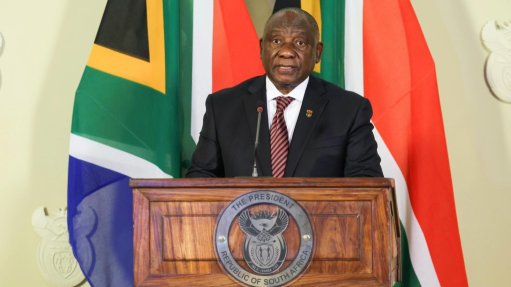Kudos for Kenyan science teacher
I have in the past used this column to lay into a top KwaZulu-Natal Education Department official for ranting about the rather lacklustre performance of the province’s matriculants, despite the massive funding that schools receive. My contention is you do not cure the ills of the basic education system simply by throwing money at the problem.
That more than monetary investment is required to ensure an effective education system has been demonstrated times without number and last week’s crowning by the London-headquartered Varkey Foundation of Kenyan Peter Tabichi as the world’s best teacher in 2018 is further testament to this.
Tabichi, who pocketed $1-million in prize money, teaches physics and mathematics at a poorly resourced village school in a remote part of the Rift Valley. There is only one desktop computer and intermittent Internet connection at the school, where the teacher:learner ratio is 1:58 and 90% of the learners hail from poor families. Almost one-third are orphans or have only one parent. What’s more, they have to walk 7 km along roads that often become impassable when it rains to get to school. Drug abuse is also rife in the drought-prone region.
This would have been too daunting for many mortals, but not so for Tabichi, who donates 80% of his salary to pay the fees of indigent learners and buy them uniforms, books and other necessities.
Tabichi did not tell this ‘sob story’ about Keriko Secondary School to the suits at the Varkey Foundation to be named the 2018 winner of the foundation’s Global Teacher Prize, which was presented in Dubai last week.
He and his colleagues have taken it upon themselves to give struggling learners one-on-one tuition in mathematics and science outside class hours and on weekends and to visit their families to find out the challenges they may be facing. Despite the poor Internet connection at Keriko, Tabichi uses information and communication technology in 80% of his lessons to engage his learners, visiting Internet cafes and caching online content to be used offline in class. He has also launched a talent nurturing club and expanded the school’s science club, helping learners to design research projects, the quality of which is so high that 60% now qualify for national competitions.
The upshot has been a dramatic improvement in the performance and self-esteem of the learners, who came first nationally in the public schools category at the 2018 iteration of the Kenya Science and Engineering Fair. They have also qualified to participate at the INTEL International Science and Engineering Fair 2019 in Arizona, in the US. Further, they have won an award from the Royal Society of Chemistry after harnessing local plant life to generate electricity.
Tabichi shrugged off competition from fellow teachers at top schools in nine countries, namely Argentina, Australia, Brazil, Georgia, India, Japan, the Netherlands, the UK and the US. The UK finalist, social health education teacher Andrew Moffat, is a hell of a heavyweight, having been knighted in 2017 for his service to equality and diversity in education.
A lesson for us in Mzansi is that it doesn’t wash for teachers at under-resourced schools in the remotest nooks and crannies of the Eastern Cape, Limpopo or Mpumalanga to cry “lack of books and other essentials” when their learners perform abysmally in national examinations. All it takes is a huge dose of dedication. I dare say Tabichi has made it with only a fraction of the resources at the disposal of South African schools. He was even deemed to be more deserving of the Teacher of the Year accolade than Britain’s Moffat, a man who is entitled to add MBE after his name on his business card because of his exploits in the education field.
This must be drilled into the heads of our teacher union officials, who are wont to call for a strike even when government comes up with sound proposals to improve our basic education system. As far as they are concerned, any proposal that entails more work for their members or a no-nonsense approach to unbecoming teacher conduct must be rejected. That’s my impression. I hope I’m wrong.
Article Enquiry
Email Article
Save Article
Feedback
To advertise email advertising@creamermedia.co.za or click here
Announcements
What's On
Subscribe to improve your user experience...
Option 1 (equivalent of R125 a month):
Receive a weekly copy of Creamer Media's Engineering News & Mining Weekly magazine
(print copy for those in South Africa and e-magazine for those outside of South Africa)
Receive daily email newsletters
Access to full search results
Access archive of magazine back copies
Access to Projects in Progress
Access to ONE Research Report of your choice in PDF format
Option 2 (equivalent of R375 a month):
All benefits from Option 1
PLUS
Access to Creamer Media's Research Channel Africa for ALL Research Reports, in PDF format, on various industrial and mining sectors
including Electricity; Water; Energy Transition; Hydrogen; Roads, Rail and Ports; Coal; Gold; Platinum; Battery Metals; etc.
Already a subscriber?
Forgotten your password?
Receive weekly copy of Creamer Media's Engineering News & Mining Weekly magazine (print copy for those in South Africa and e-magazine for those outside of South Africa)
➕
Recieve daily email newsletters
➕
Access to full search results
➕
Access archive of magazine back copies
➕
Access to Projects in Progress
➕
Access to ONE Research Report of your choice in PDF format
RESEARCH CHANNEL AFRICA
R4500 (equivalent of R375 a month)
SUBSCRIBEAll benefits from Option 1
➕
Access to Creamer Media's Research Channel Africa for ALL Research Reports on various industrial and mining sectors, in PDF format, including on:
Electricity
➕
Water
➕
Energy Transition
➕
Hydrogen
➕
Roads, Rail and Ports
➕
Coal
➕
Gold
➕
Platinum
➕
Battery Metals
➕
etc.
Receive all benefits from Option 1 or Option 2 delivered to numerous people at your company
➕
Multiple User names and Passwords for simultaneous log-ins
➕
Intranet integration access to all in your organisation

















